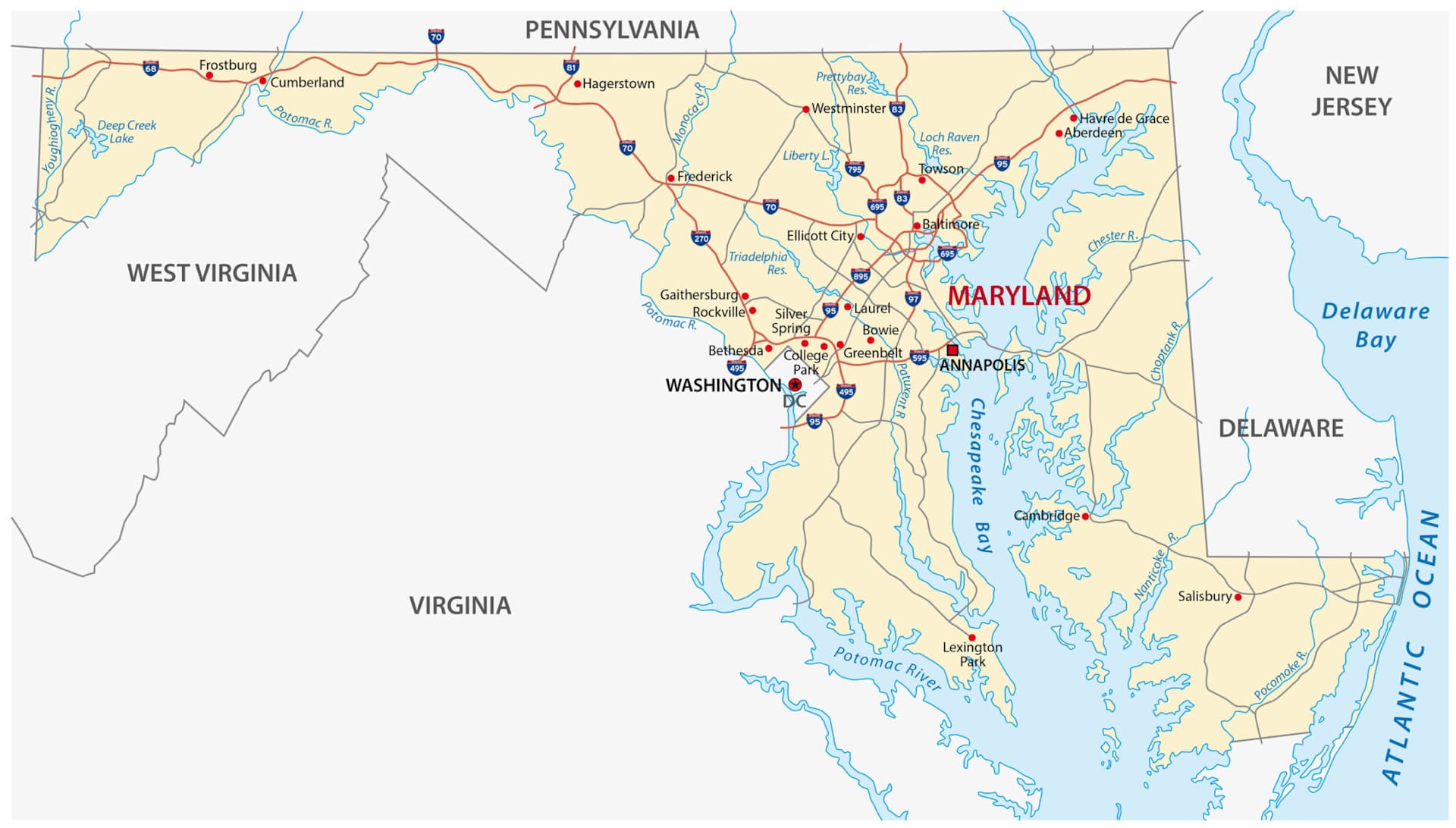If you are a real estate agent in the DMV area, you might be considering getting licensed in a nearby jurisdiction: Maryland, Virginia, or D.C. Here’s what you need to know.
First, let’s consider the pros and cons of getting licensed in another state.
Pros
- Increased business opportunities – Being licensed in additional states gives you the opportunity to assist clients in multiple markets, greatly expanding your customer base.
- Flexibility – With multiple licenses, you’ll be able to go where the business takes you. If your clients are selling in one state and end up finding a new home in a nearby state, you can handle both transactions.
- Lifestyle benefits – if you have a second home or spend time in a different state during the year, your business doesn’t have to go on hiatus. You’ll be free to build your business in both areas.
Cons
- Increased expenses – Getting and maintaining a license in another state will result in increased overhead. You may need to pay licensing fees and exam fees, MLS fees for each state, as well as state association and local memberships fees.
- Tax implications – You’ll need to file taxes in each state where you do business. Consult a tax professional to advise you of the tax implications of doing business in multiple states.
- Knowledge of new market – Your clients will expect you to have in-depth knowledge of the local market, so you’ll need to educate yourself and stay up to date.
- More details to track – Each state has its own laws and regulations governing real estate. Forms and systems may also differ from state to state. You will need to be aware of the differences and pay attention to the details.
- Brokerage concerns – To do business in some states, you’ll have to hang your license with a sponsoring brokerage that has a presence in that state. That could end up costing you more brokerage desk fees, etc.
For many real estate agents in the D.C., Maryland, and Virginia areas, the opportunity for new business outweighs the potential downsides. If you are considering getting licensed in a nearby state/jurisdiction, there are two terms you need to know: license reciprocity and portability.
Real Estate Licensing Reciprocity
Real estate licensing reciprocity means that one state recognizes another state’s real estate license as a partial or full replacement for their own license. So, if you’re an active, licensed real estate agent in good standing in one U.S. state, you may be able to use it to “fast-track” the process of getting licensed in another state or jurisdiction, if your states have a reciprocity agreement.
The process and requirements vary state by state. But often, a real estate license holder will be able to skip the required pre-licensing courses and will only have to take the state-specific portion of the licensing exam.
States determine which other states they will offer reciprocity to, and they fall into 3 categories: No reciprocity, full reciprocity, and selective reciprocity.
License Portability
Not sure if you want to get licensed in another state? It might be possible for agents to assist clients who want to buy or sell in a state in which they are not licensed. This is determined by a state’s real estate license portability guidelines. Portability refers to where and how you can or cannot practice real estate outside of your home state. States have one of three classifications for license portability: Cooperative, physical location, or turf state.
- Cooperative means that you can do business in that state, but you’ll need another real estate agent who is licensed in that state to co-broker the transaction with you.
- Physical location portability means that you can do business in another state, but you must conduct it remotely. You cannot physically be in the state when you conduct business.
- Turf states do not allow anyone who is not licensed in that state to do business in it. You would need to refer your clients to a state-licensed real estate agent. In this case, you may receive a referral fee, but cannot be involved in the transaction.

Here’s a quick overview of Maryland, Virginia, and D.C.’s reciprocity and portability requirements.
| State | Reciprocity | Reciprocity Requirements | Portability |
| Maryland | Selective/Partial: PA, OK only |
Must hold a current and active real estate license from PA or OKPA licensees excused from all exam and CE requirementsOK licensees must pass MD portion of exam; excused from CE requirementMust submit complete, original certified license history within 30 days of its issue date | Cooperative |
| Virginia | Full: All U.S. states |
Active Real Estate License holder in good standing Complete Virginia licensing law exam within the prior 12 monthsMeet educational requirements that are substantially equivalent to those required in VAPass a fingerprint and background checkJoin a broker licensed in D.C. | Physical location |
| Washington, D.C. | FULL: VA, MD full reciprocity; all other states by endorsement application |
Active Real Estate License holder in U.S. stateMeet or exceed the equivalent of D.C.’s pre-licensing education requirements in home stateComplete D.C.’s 3-hr Fair Housing courseObtain original DPOR Letter of Certification Complete D.C. licensing law examJoin a broker licensed in D.C. | Physical location |
*Special thanks to Danny Leung from CENTURY 21 Redwood Realty who offered insight and perspective on this topic.
Contact us to learn more about Redwood.



